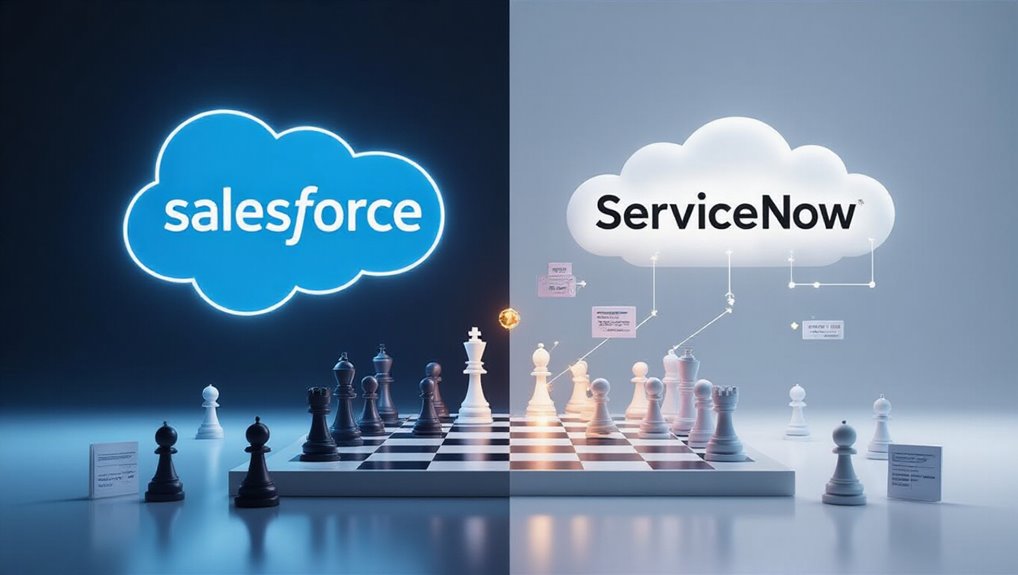Salesforce has launched a bold offensive into the IT Service Management (ITSM) market, announcing its entry plans at Dreamforce 2025. This strategic move directly challenges ServiceNow‘s long-established dominance in the ITSM space. The timing appears calculated, following ServiceNow’s recent expansion into CRM territory—Salesforce’s traditional stronghold.
Salesforce boldly enters ITSM arena, challenging ServiceNow’s dominance in what appears to be strategic retaliation for competitive encroachment.
The new offering, called Agentic IT Service, integrates several key components of Salesforce‘s ecosystem. It leverages Slack‘s massive user base of over 30 million daily active users as the foundation for a conversational ticketing system. CEO Marc Benioff has emphasized Slack integration as a cornerstone of their ITSM strategy. Users can raise, track, and resolve IT issues directly within Slack channels, meeting employees where they already work.
Agentic AI forms the core of this new service. This autonomous system understands context, executes workflows, and provides AI-driven recommendations. The system can:
- Automatically triage incoming requests
- Route issues to appropriate agents
- Handle Level 1 and Level 2 queries independently
- Reference account data and knowledge bases in real time
Salesforce’s strategy targets organizations already invested in its ecosystem, promising seamless integration with minimal setup costs. This positioning directly counters ServiceNow’s traditionally higher pricing structure, potentially appealing to cost-conscious enterprises. This approach aligns with the broader ITSM objective of optimizing resource usage while enhancing overall service quality.
The market entry complements Salesforce’s broader AI and data strategy. By connecting the Salesforce Data Cloud, the system integrates customer, employee, and system data for more informed decision-making. This move aligns with Gartner’s prediction that 70% of IT service operations will incorporate generative or agentic AI by 2026. This creates a unified platform where both employee and customer support can be managed from a single system.
Despite these advantages, Salesforce faces significant challenges. The company lacks established ITSM credibility compared to ServiceNow’s entrenched market position. Success will depend on Salesforce’s ability to demonstrate operational effectiveness at scale.
Early adoption signs appear promising. Salesforce has reportedly closed over 12,500 deals since launching Agentforce, with nearly half being paid implementations. This suggests the market may be receptive to an alternative that combines ITSM capabilities with Salesforce’s existing strengths in customer relationship management.









